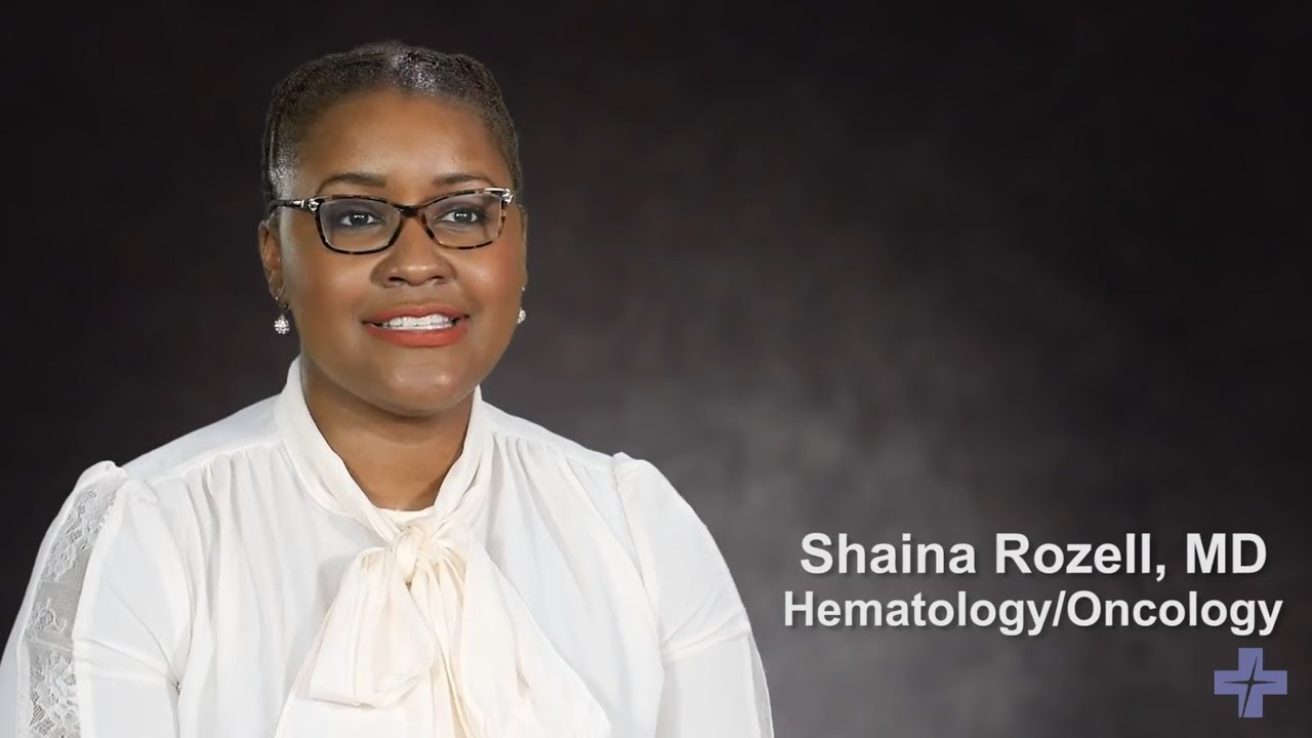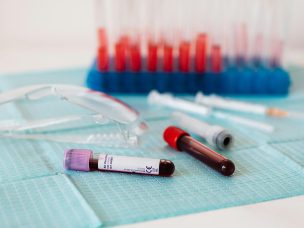In this MD Newsline exclusive interview with oncologist Dr. Shaina Rozell, we discuss disparities in lung cancer screening, diagnosis, and treatment experienced by African Americans, and how socioeconomic status plays a role in these disparities. We also discuss how to improve messaging on lung cancer screening and recent research developments in the treatment of lung cancer.
MD Newsline:
Can you speak to the disparities in lung cancer screening, diagnosis, and treatment experienced by African Americans?
Dr. Shaina Rozell:
“I think lung cancer screening overall is a very difficult task. We don’t have tests like colonoscopies or pap smears to diagnose lung cancer. It’s a low-dose CT scan. Number one, you have to have insurance. CT scans are not cheap. So, making sure that you can encourage these patients saying, ‘hey, if you are a smoker, if you’ve been smoking 50 plus years, you have to get a CT scan…’ It’s not going to happen.
We don’t even have patients who go to the doctor who have insurance who agree to this test. I think we are missing a lot of cancers that could be diagnosed at an earlier stage.
As far as our African American patients, many of them have been smoking for years. We’ve been smoking since we were teenagers, 13, 14 years old. In fact, the smoking incidences of African American women are higher now. So you’re having higher rates of lung cancer in women. But again, if this is our norm, this is what we do—I don’t think we’re seeking more information on lung cancer or doing these tests to help diagnose potential cancers.
Disparities in lung cancer diagnosis definitely are impacted by socioeconomic status: income and education. If I don’t have insurance, I’m definitely not going to spend money on getting a CT scan. Number two, I’m not going to pay for anything regarding lung cancer screening. I’d rather pay for something else, whether it’s food, clothing, my rent, etc. I’m not going to pay money for a CT scan to help diagnose something that potentially may not be there.
And then there’s the education piece. Many people don’t think it’s cancer until they notice a problem. Right? So, it’s not until I’m coughing or I’ve developed hemoptysis or pain that I’m seeking care. Whereas lung cancer screening is more so for when you’re feeling well.
Most of the patients are not going to the doctor when they’re feeling healthy. They go to the doctor when they’re feeling unwell. And so, unfortunately, because of that, we’re diagnosing these cancers at later stages.
Number one, when we’re talking about these patients’ cancers being diagnosed at later stages, the option of surgery is limited to stage 1 and stage 2 lung cancer. But most of these patients present at stage 3 or stage 4, so the potential for a cure no longer exists for these patients. Because of this disparity in staging, we see a major disparity in lung cancer diagnosis and surgical treatment for lung cancer.
Number two, there’s a lack of education and awareness about what kind of treatment options are out there for lung cancer. People hear the word ‘chemotherapy,’ and they go crazy. And they think chemotherapy means they’re going to feel horrible, they’re going to lose their hair, and they’re going to feel sick. But it’s not all gloom and doom now. Many patients are doing well, and you may not even know that they’re on therapy.
And therapy has changed. There’s targeted therapy. There’s immunotherapy. There are lots of different options that may not necessarily include chemotherapy. But I think as an African American provider, I have to dismantle the idea that treatment for lung cancer is only chemotherapy. Treatment for lung cancer comes in many forms, and at least my African American patients are often not aware that’s the case.”
MD Newsline:
How might we improve messaging surrounding lung cancer screening, particularly for African Americans?
Dr. Shaina Rozell:
“So I think that’s a challenge. I think that’s a major challenge. I think we need to raise awareness that there’s a screening test for lung cancer. Many African Americans don’t even realize there’s a screening test. They know there’s a colonoscopy. They know you should get your pap smear. And they know maybe we need to do some form of a prostate exam. And doing a prostate exam is a major feat with our African American men. That’s a whole loaded, different kind of conversation.
But that’s all they know. They don’t know that there is a test that exists to screen for lung cancer. So I think we need a universal message for lung cancer screening like we do for colon cancer screening and prostate cancer screening. We need to make sure that our primary care providers are screening the patients who are candidates for the test.
I don’t think that’s going to address many of the patients who are not going to the doctor. But I think it will help increase lung cancer screening among the patients who do go to the doctor. So I think we need to start there, and then we can start working on getting lung cancer screening done for our patients who could be at risk but don’t go to the doctor.”
MD Newsline:
Is there any research that excites you or that you think is important for physicians to know related to lung cancer?
Dr. Shaina Rozell:
“I think cancer in itself is very fascinating. They’re going to be talking about a lot of data at our American Society of Clinical Oncology conference about different types of treatment options, such as combination immunotherapy for lung cancers.
So I want to emphasize to our providers that it’s not just chemotherapy that we use to treat lung cancer. There are a lot of new treatment options that have allowed patients to live much longer, which I think is fantastic. I’ve been able to even keep some of my patients with stage 4 lung cancer who had a survival rate of about 6 months—they’ve now been here 2 to 3 years, which is amazing and giving them the opportunity to live with some form of quality of life.
So I would say look out. There is some new lung cancer research that will be hot on the press.”
Responses have been condensed and lightly edited.










